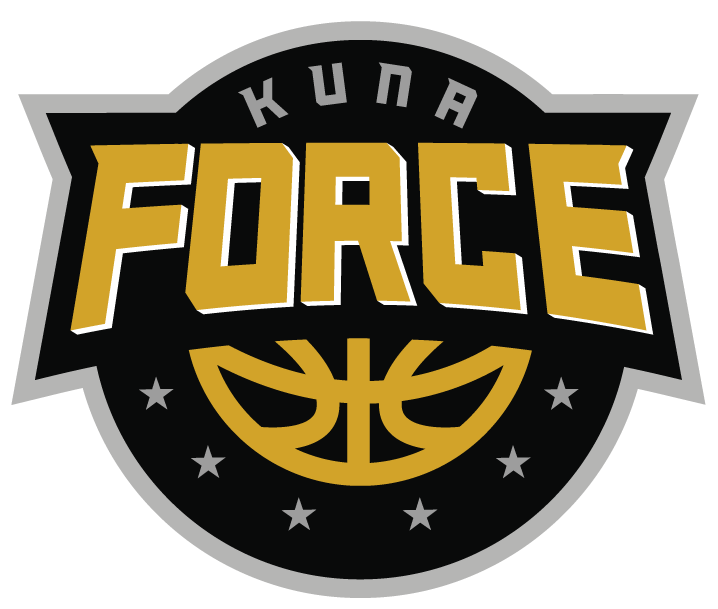Regulations for Everyone
• • • • • • •
-
Number of Players Per Team:
- You must have 3 MINIMUM team members and may have 4 MAXIMUM. One to substitute.
- Only 3 team members can be on the court at any time. (See 18+ Only Rules for an exception for co-ed teams.)
-
Clothing and Equipment:
- Absolutely no hard sporting equipment from hard/metal braces, splints, casts, supports, etc., even if fabric covers the hard substance.
- Soft splints, wraps, and tapes may be permitted with the approval of event officials.
-
Eligibility:
- If you have committed to any high school or collegiate sports, you are responsible for determining if playing in our tournament would affect your eligibility to play in a committed sport.
-
Brackets:
- As each team registers, we receive competitive information including age, height, and experience. We attempt to build equal brackets based on this.
- Adult players must carry an ID to verify that they're the registered party.
-
Fouls:
- Most fouls get called by the players. Specifically, most people acknowledge when it's their fault and the game moves on. If you need a monitor to resolve a dispute, you can flag down a game monitor.
- If a foul is called, a player gets a free throw, unless they were attempting a shot that was successful. In that case, the successful shot is the end of the foul.
- There will be monitors at all grade-school level games who referee. Court monitors are also more referees at the Elite Division, as well.
- Regardless of whether you make a free throw, the ball changes hands. No rebounds after a missed free throw, always a possession change.
-
Team Fouls:
- Only called in the Elite Divisions.
-
Technical Fouls:
- There are unclassified levels of severity of technical fouls, and the consequence is based on the severity of the foul. Some of the lighter technical fouls include trash talking, taunting, and targeted derogatory remarks. Technical fouls can be used to remove anyone who is impeding play--coaches, players, and fans alike.
-
Intentional Fouls:
- An intentional foul is when aggressive behavior is directed toward a person above being a play for the ball.
-
Flagrant Fouls:
- Flagrant fouls, though they may be violent in nature, do not have to be violent to be called. Common, more violent flagrant fouls include hitting, kicking, kneeing, forcing dangerous landings for an opponent in the air. It may also be when players excessively target each other and use derogatory remarks that are more persistent and abusive than technical fouls.
- Players cannot call technical, intentional, or flagrant fouls. Court monitors must do so, and their decision is not up for review.
- A player who makes a basket and is fouled by an opponent who then also receives technical, intentional, or flagrant foul will receive the point(s) made for their basket, a one point guaranteed for the additional infraction, and their team keeps possession of the ball.
-
Stalling:
- Because we run on a timed-game basis, some players try to employ stalling tactics in order to run the time down as long as they have a lead. This is strictly prohibited. It's unsportsmanlike behavior and any team found to be stalling receives a technical foul.
-
Which Team Receives the Ball First?:
- A coin toss before each game determines first possession.
-
Keeping Score:
- All baskets made inside the 2-point line earn one point. All baskets made outside of the 2-point line earn two points. The first team to 20 points wins (unless timing becomes an issue, see below), and you can win by 1 point.
-
Game Length, All Divisions (except the OPEN Division)
- The first team to achieve 20 points within 25 minutes wins and the game's over.
- You may win by 1 point.
- If neither team has achieved 20 points by 25 minutes, if either team is winning by at least 2 points, that team is declared the winner and the game is over. If neither team is leading by 2, the game goes into overtime.
- In overtime, whichever team either reaches 20 points or scores 2 more points than their opponent had to begin overtime, is the winner and the game is over.
-
Overtime Examples
-
Team A: 18 points Team B: 17 points
- The first team to 20 points wins. No game goes above 20 points
-
Team A: 17 points Team B: 17 points
- The first team to 19 wins, because that team has 2 more points than their opponent had to start overtime.
-
Team A: 14 points Team B: 15 points
- The first team to 17 wins, because that team has 2 more points than their opponent had to start overtime.
-
Team A: 8 points Team B: 10 points
- Team B wins without overtime because they have a 2-point lead.
-
Team A: 18 points Team B: 17 points
-
Putting the Ball Into Play (Check)
- To put the ball into play, the team with possession "checks" the ball with their opponent. The player with the ball passes the ball to his opponent (standing close) who passes the ball back to the original player. From there, the player with the ball must also pass the ball to begin play.
-
Possession Change
- Possession changes teams with every scored basket and all free-throw attempts (unless technical intentional or flagrant fouls).
-
Taking It Back
- The ball must be taken back to the "take-back line" at the back of the half court after every change of possession. This means whoever now has possession has to get themselves and the ball over the take-back line before beginning play again.
-
Out of Bounds
- Any out-of-bounds ball will be taken to the backcourt line to resume play.
-
Boundaries:
- Anything outside of the floor (within the lines) and the actual hoop and backboard (including the top and sides of the backboard) is considered out-of-bounds. Inside the lines and within the backboard is in-bounds.
-
Jump Ball:
- Jump balls aren't physically done at our tournament. What would be "jump balls" are possession changes based on who won that game's coin toss. For example: If Team A won the start-of-game toss, Team B gets possession of a jump ball.
-
Dunking:
- NO DUNKING, even in warm-ups. If conducted in game play, it is a technical foul.
-
Substitutions:
- When the ball is out of play (during a time-out or "dead ball"), substitutions can be made.
-
Time Outs:
- Each team gets a single 1-minute time-out per game.
-
Injured Players:
- A Court Monitor has the discretion to stop play to deal with an injured player. If the player is bleeding, they have to leave the court to get cleaned up and properly bandaged. Bloody clothes have to be changed or cleaned in any of the bloodied areas. Kuna Force Basketball Club reserves the right to deny players' eligibility based on an injury or suspected injury, including suspected concussion and/or loss of consciousness. A written note from a medical doctor may be mandatory before returning to play.
-
Game Times:
- Printed schedules are only used for the first round of games for all teams. After that, there's a Master Scoreboard that each team should check for game times, locations, changes, and notices. There is only a 5-minute grace period before forfeits are declared. Players are encouraged to keep officials informed of conditions that are affecting play. In the unlikely condition that something happens at this point that the event is modified or cancelled, entry fees will not be refunded.

